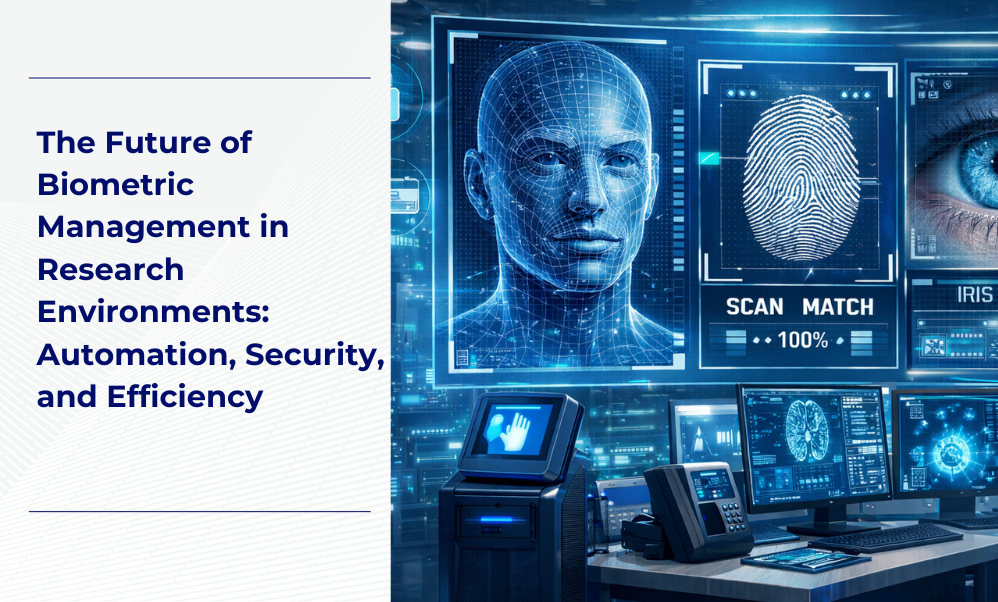Facial recognition software is rapidly becoming an indispensable tool in law enforcement. It offers unparalleled capabilities in identifying and tracking individuals. This technology is reshaping how law enforcement agencies operate, from solving crimes faster to enhancing public safety.
However, its use also raises significant legal and ethical concerns that must be carefully considered. This article explores the powerful impact of facial recognition software in law enforcement, the legal frameworks surrounding its use, and the key challenges it presents.
The Role of Facial Recognition Software in Law Enforcement
Facial recognition software plays a pivotal role in modern law enforcement. By analyzing unique facial features and comparing them against vast databases, law enforcement agencies can swiftly identify suspects, track down missing persons, and even prevent crimes before they occur. The software's ability to process and match images in real time provides law enforcement with a powerful tool to enhance public safety.
How Facial Recognition Software Enhances Law Enforcement
- Crime Solving and Prevention: Facial recognition software enables law enforcement to solve crimes faster and more efficiently. By matching images from crime scenes with existing databases, investigators can identify suspects within minutes. This capability is precious in cases where time is of the essence, such as locating fugitives or preventing terrorist attacks.
- Tracking and Monitoring: Beyond solving crimes, facial recognition software allows law enforcement to monitor high-risk areas and individuals of interest. For example, surveillance cameras equipped with facial recognition technology can identify known criminals in real-time, allowing officers to take immediate action.
- Public Safety and Event Security: Large public events, such as concerts or sports games, pose significant security challenges. Facial recognition software helps law enforcement monitor crowds for potential threats, ensuring a safe environment for all attendees. Identifying and tracking individuals in large crowds is a game-changer for event security.
Legal Considerations and Challenges
While facial recognition software offers immense benefits, it raises important legal and ethical questions. The use of this technology must be carefully balanced with individuals' privacy rights and the potential for misuse.
- Privacy Concerns: Using facial recognition software in law enforcement has sparked widespread debate about privacy rights. Critics argue that constant surveillance and the potential for unauthorized use of facial data infringe on individual freedoms. Law enforcement agencies must ensure that their use of this technology is transparent and accountable.
- Accuracy and Bias: Despite technological advances, facial recognition software is flexible. There have been instances where the software has misidentified individuals, leading to wrongful arrests. Moreover, studies have shown that facial recognition technology can be biased, particularly against people of color and women. These issues must be addressed to prevent miscarriages of justice.
- Legal Frameworks: The legal landscape surrounding facial recognition software is still evolving. In the United States, no federal regulation explicitly governs this technology's use in law enforcement. However, several states and cities have implemented their regulations, ranging from restrictions to outright bans. Law enforcement agencies must navigate these varying legal requirements to ensure compliance.
Best Practices for Implementing Facial Recognition in Law Enforcement
For facial recognition software to be effectively and ethically used in law enforcement, agencies must follow best practices that address technical and legal challenges.
- Transparency and Accountability: Law enforcement agencies should be transparent about using facial recognition software, including how the technology is used, what data is collected, and how it is stored. Clear policies should govern the use of this technology, and regular audits should ensure compliance.
- Training and Education: Proper training is essential for law enforcement officers who use facial recognition software. Officers should be educated about the technology's capabilities and limitations and the legal and ethical considerations involved. This will help prevent misuse and ensure that the technology is used effectively.
- Collaboration with Legal Experts: Law enforcement agencies should work closely with legal experts to navigate the complex legal landscape surrounding facial recognition software. This collaboration will help ensure that the technology is used in a way that respects individuals' rights and complies with all applicable laws.
The Future of Facial Recognition Software in Law Enforcement
The future of facial recognition software in law enforcement is both promising and uncertain. As the technology evolves, it will become even more integral to law enforcement operations. However, the legal and ethical challenges will also become more pronounced, requiring ongoing dialogue and regulation.
The Promise of AI and Machine Learning: Integrating artificial intelligence and machine learning into facial recognition software will enhance accuracy and efficiency. These advancements will enable law enforcement to process vast amounts of data more quickly, leading to faster identification of suspects and better crime prevention strategies.
Global Adoption and Regulation: As facial recognition software becomes more widespread, there will be increased pressure for global standards and regulations. International collaboration will be vital in addressing the cross-border implications of this technology and ensuring that it is used responsibly.
FaceAI by BJIT: Revolutionizing Law Enforcement with Advanced Facial Recognition
One of the leading solutions in facial recognition software is FaceAI, developed by BJIT. FaceAI is at the forefront of innovation, offering law enforcement agencies a robust and highly accurate tool to enhance public safety and streamline criminal investigations.
Key Features of FaceAI
- High Accuracy and Speed: FaceAI leverages cutting-edge algorithms and machine learning techniques to identify individuals accurately. It can process and compare vast amounts of data in real time, ensuring that law enforcement officers receive instant and reliable results.
- Scalability and Flexibility: Designed to integrate seamlessly with existing law enforcement infrastructure, FaceAI is scalable to meet the needs of agencies of all sizes. Whether it’s a small local department or a large federal agency, FaceAI can be customized to fit specific operational requirements.
- Ethical AI Integration: BJIT has developed FaceAI with a strong emphasis on ethical AI practices. The software includes built-in features to minimize bias and ensure fairness across diverse populations. This focus on ethical AI helps law enforcement agencies use facial recognition technology responsibly and equitably.
- Advanced Data Security: Understanding the sensitive nature of facial recognition data, FaceAI incorporates state-of-the-art encryption and security protocols. This ensures that all data is protected from unauthorized access, safeguarding individuals' privacy while enabling effective law enforcement operations.
How FaceAI Supports Law Enforcement
- Crime Prevention and Investigation: FaceAI enables law enforcement to identify and track suspects with unprecedented speed, helping to prevent crimes and solve ongoing investigations more efficiently.
- Public Safety Monitoring: FaceAI integrates with surveillance systems to enhance public safety efforts in crowded or high-risk areas. The software can flag individuals of interest in real-time, allowing law enforcement officers to act swiftly.
- Collaboration Across Jurisdictions: FaceAI is designed to facilitate collaboration across different law enforcement agencies and jurisdictions. Its interoperable platform allows for sharing data and insights, enabling more effective responses to criminal activities spanning multiple regions.
Why Choose FaceAI by BJIT?
FaceAI stands out in the competitive field of facial recognition software due to its commitment to accuracy, ethics, and security. Law enforcement agencies looking for a reliable, high-performance solution will find FaceAI an invaluable asset in their operations.
FAQ Section
What is facial recognition software, and how is it used in law enforcement?
A: Facial recognition software analyzes and compares facial features to identify individuals. Law enforcement uses it to solve crimes, track suspects, and enhance public safety by matching images from crime scenes or surveillance footage against databases.
What are the legal challenges associated with facial recognition software in law enforcement?
A: Using facial recognition software in law enforcement raises several legal challenges, including privacy concerns, potential bias in the technology, and the lack of a standardized legal framework. Different states and cities have varying regulations, and no federal law currently governs its use.
How accurate is facial recognition software in law enforcement?
A: While facial recognition software has made significant strides in accuracy, it could be better. There have been instances of misidentification, particularly among people of color and women. Law enforcement agencies must know these limitations and ensure the technology is used responsibly.
What are the ethical considerations for law enforcement using facial recognition software?
A: The ethical considerations of using facial recognition software in law enforcement include the potential for invasion of privacy, the risk of wrongful arrests due to misidentification, and the need to prevent bias in the technology. Agencies must balance the benefits of this technology with the need to protect individual rights.
How can law enforcement agencies implement facial recognition software ethically?
A: Law enforcement agencies can implement facial recognition software ethically by being transparent about its use, ensuring proper officer training, and collaborating with legal experts to navigate the complex legal landscape. Regular audits and accountability measures should also be in place.
Conclusion
Facial recognition software significantly benefits law enforcement, from solving crimes faster to enhancing public safety. However, its use also presents complex legal and ethical challenges that must be carefully managed. By following best practices and staying informed about the evolving legal landscape, law enforcement agencies can harness facial recognition software's power while protecting individuals' rights and freedoms.










